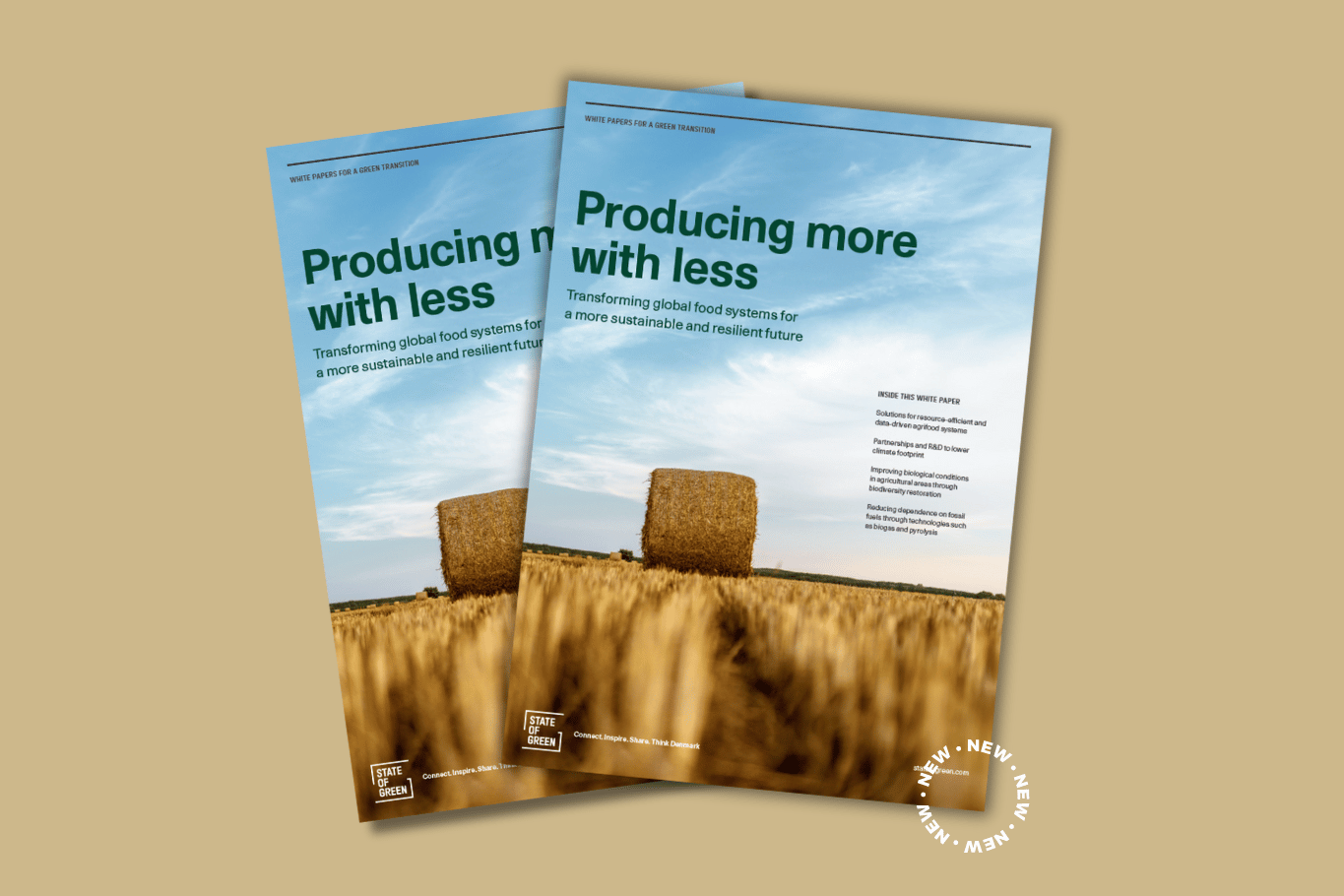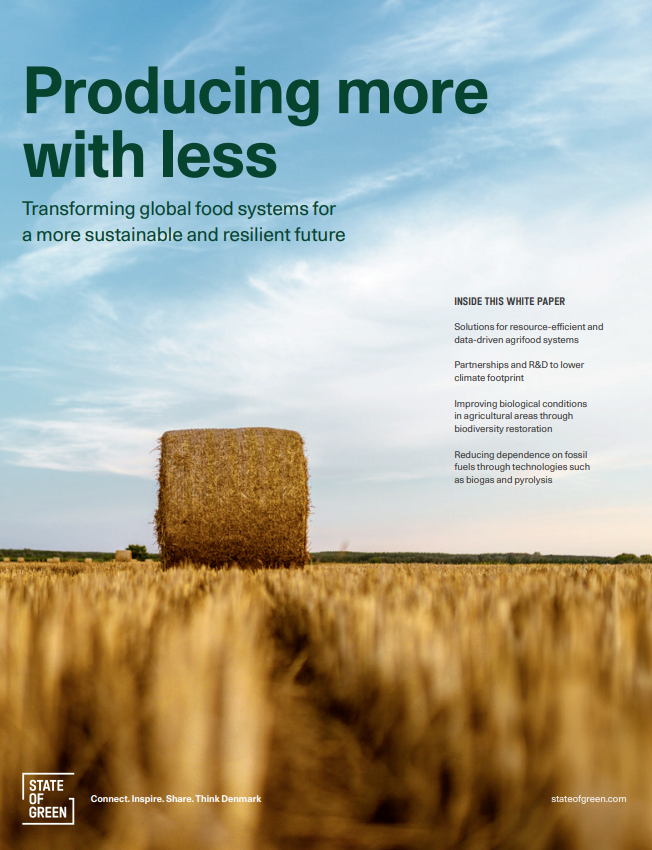Download the white paper
Download the white paper and discover how Danish reserachers, technology providers and players across agrifood systems strive to transform global food systems and produce more with less.
Explore the white paperNews
Resource efficient production
Air pollution in agriculture
Biodiversity
+10



Download the white paper and discover how Danish reserachers, technology providers and players across agrifood systems strive to transform global food systems and produce more with less.
Explore the white paperWith the global population expected to reach 10 billion by 2050, the need to transform global food systems and produce more with less plays a crucial part in the global green transition.
With a rich history as a farming country, being recognised as a producer of some of the most sought-after food products worldwide, Denmark has set targets to lead the way in transforming global food systems for a more sustainable and resilient future. This effort is driven by public-private partnerships and resource-efficient agrifood solutions, seeking to accelerate measures in decarbonising the agrifood sector towards reaching both national and global climate goals.
Recognising the pivotal role that food production holds for the prosperity and well-being of a rapidly growing global population, a new white paper on “Producing more with less” showcases Danish solutions to the challenges of rethinking the agrifood cluster.
The new white paper was launched on 10 December at the Denmark Pavillon during COP28 in Dubai under the theme of “Fueling the journey for the decarbonisation of food and agriculture”.
The white paper “Producing more with less” offers insights from Denmark’s journey towards a greener food and agriculture landscape, presenting solutions for resource-efficient and data-driven agrifood systems along the way. With perspectives and cases from Danish solution providers, the publication covers everything from samples of how partnerships and R&D can lower climate footprint, models on how to improve biological conditions in agricultural areas through biodiversity restoration, to ways to reduce dependence on fossil fuels through technologies such as biogas and pyrolysis.
We hope that the white paper can act as a source of inspiration for new solutions to optimise productivity and deliver sustainable food production, addressing some of the most urgent global challenges we’re facing today.